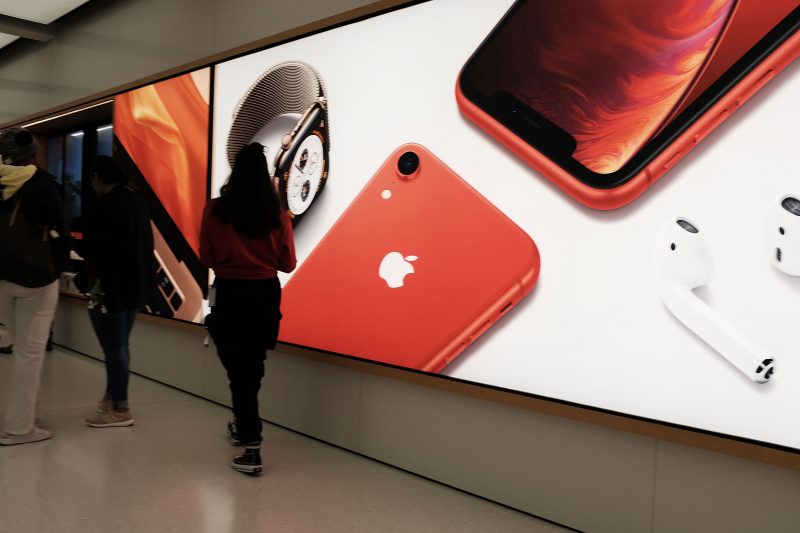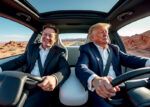Apple says US tariffs on China would backfire
Apple is warning that President Donald Trump’s proposed tariffs on China would backfire by making US firms less competitive and would “tilt the playing field” in favor of Chinese rivals (SPENCER PLATT)
Washington (AFP) – Apple is warning the US administration that proposed tariffs on Chinese imports would be counterproductive, saying they would hurt the iPhone maker’s competitiveness and “tilt the playing field” to non-American rivals.
In comments filed this week to the US Trade Representative, Apple said the tariff proposal by President Donald Trump would hurt Apple’s ability to compete and also end up reducing the tech giant’s contributions to the US economy in taxes and investments.
The Apple comments dated June 17 noted that the company is the largest US corporate taxpayer and also is on track to invest some $350 billion in the country over five years.
“US tariffs on Apple’s products would result in a reduction of Apple’s US economic contribution,” the company said.
Additionally, the company said the plan would “weigh on Apple’s global competitiveness” and effectively boost its Chinese rivals.
“The Chinese producers we compete with in global markets do not have a significant presence in the US market, and so would not be impacted by US tariffs,” the letter said.
“Neither would our other major non-US competitors. A US tariff would, therefore, tilt the playing field in favor of our global competitors.”
The US already has 25 percent duties on more than $250 billion of imports from China.
Global markets are concerned about Trump’s threat to impose more steep tariffs on China, on an additional $300 billion in goods.
Apple, which according to some reports is considering moving some production of iPhones and other goods from China to India or other countries, said the proposed tariff list “covers all of Apple’s major products,” including iPhone, iPad, Mac, AirPods and AppleTV.
Disclaimer: Validity of the above story is for 7 Days from original date of publishing. Source: AFP.


